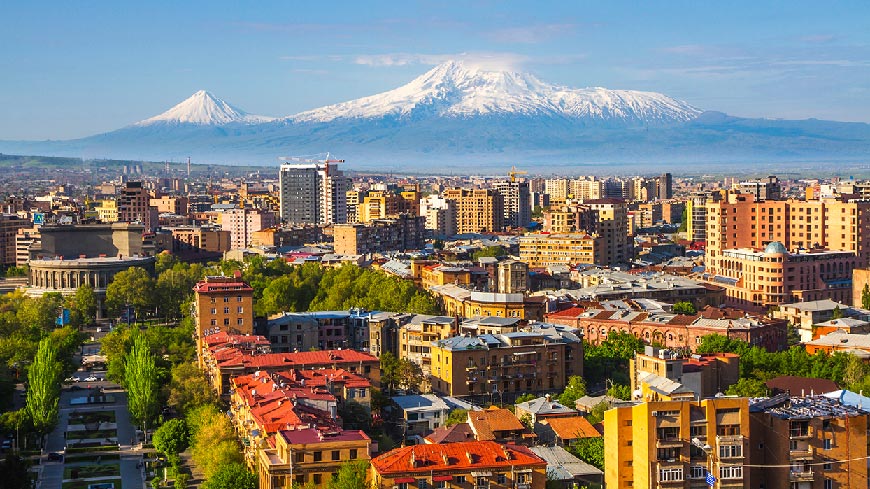Engaging regional youth in the citizenship education
The project with this name was implemented in mid-2022 by the NGO Youth is Power from Armenia.
To explore and give a wide picture of young people needs, involvement at various levels of socio-political life. To give reliable and reasonable information on youth involvement and participation in democracy processes, civic activism and local governance. CSO and state response on recent developments and young people needs. This was the aim of the project.
Armenia is moving on keeping the democratic values, human rights and freedom of expression. Armenian non-governmental organisations operate in a generally favourable legislative climate and Armenia’s civil society is vibrant.
Since 2018, political parties have operated in a much freer environment, though they were largely unable to hold rallies in 2020 due to COVID-19-related restrictions and later the declaration of martial law during the conflict with Azerbaijan.
On 27th of September 2020, heavy fighting broke out between Armenia and Azerbaijan over the territory of Nagorno-Karabakh. Due to the most dreadful escalation of the conflict since 1994, thousands of displaced people have arrived in Armenia. In the aftermath of the peace agreement signed between Armenia and Azerbaijan on November 10th, 2020, several settlements, regions and towns populated by Armenians have been ceded to Azerbaijan. Therefore, Armenia has seen continuous surges of large numbers of displaced people from the conflict zone.
Armenia’s politics has been seriously destabilized since the fighting broke out. More than 2,400 Armenian soldiers were killed in 2020 – mostly young people – while 90,000 of the territory’s residents fled to Armenia. The government faced widespread criticism over the handling of the conflict and the pandemic. Snap parliamentary elections took place in June 2021, but the ruling party was re-elected, which raised the level of dissatisfaction among some groups of society and led to the Armenia’s parliamentary opposition holding rallies.
The CSO working in Armenia played a great role during all the crises (Pandemic, War and consequences). As most of the participants of the focus group mentioned CSO sector, specifically youth organizations did a big volunteering work both during pandemic and war as well as awareness raising actions. They were flexible enough to response the crises change their strategies and act accordingly.
Afterwards, as the representatives of CS mentioned, they invest in keeping stability, human rights, freedom of expression, tolerance in this hard period.
Numerous studies confirm that unemployment is one of the primary problems among young people. There is a major gap between the education and demands of the labour market.
Unemployment and employment rates among young people have not changed dramatically in recent years. The highest unemployment rate is reported among youth aged 20-24 years- old, standing at 35.7% in 2016. According to official statistics, average youth employment rate is around 32% and unemployment rate is 28%. At the same time, these indicators, with very small fluctuations of 1-2%, have remained almost unchanged during the last 10 years. There is a mismatch between the education system supply and the labour market demand, which is mainly due to the following: young people choosing popular but not demanded professions; lack of secondary vocational education qualifications; low level of applied knowledge at that level of education; non-compliance of educational programs with market requirements; etc.
According to a labour force survey conducted in 2018 by the State Statistics Committee, the labour force in Armenia makes up 68% of the population, of which 57% are economically active. Among the economically active population 20.4% are unemployed. 45% of the unemployed are 15-35 years old. According to these indicators, Armenia has the lowest position in the region. The highest economic activity is observed among male population.
The project “Engaging regional youth in the citizenship education through non formal education” consist of:
- desk research and Meta analyses
- meetings with youth including regions of the Republic of Armenia in a format of workshops, trainings and active discussions aiming at doing a needs assessment and equipping youth with practical knowledge and skills in Non Formal education, Citizenship Education, Participatory Governance and Democracy.
- discussions and/or focus group meetings with decision makers; the representatives of local authorities, youth workers, administrative bodies, state representatives who deal with youth policy, youth programs, evidence based policy and present the updated needs of youth, listen their feedback and vision
- Preparation of a report on the overview of youth policy, developments at youth sector, youth work etc. Core recommendations presented to policy makers and state representatives and included into report.
Project Summary
- Desk Research and Meta analyses
- 3 interactive workshops and trainings in 3 regions of RA with an involvement of 55 young people. Topics: Non Formal education, Citizenship Education, Participatory Governance and Democracy, Human Rights, Critical Thinking and Media Literacy etc.
- Needs assessment among youth. 3 discussions in means of focus groups with 34 young people, including youth workers, youth project managers, students, high school pupils, youth leaders, young activists etc.
- 2 focus group meetings with 18 representatives of various stakeholders including decision makers on youth policy (administrative bodies, state representatives who deal with youth policy, youth programs, evidence based policy, researchers, CSO representatives, youth workers, researchers etc). Presentation of the needs of youth, listen their feedback and visionAnalyze the data, statistics and information .
The project has been funded by the Federal Agency for Civic Education using funds appropriated by the Federal Foreign Office, Expanding Cooperation with Civil Society in the Eastern Partnership Countries and Russia (Eastern Partnership Programme).


